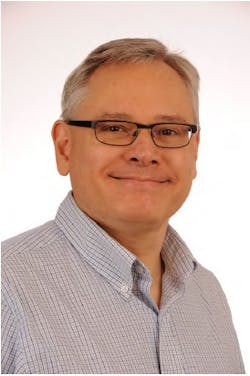David Dickmander: Justifying HVDC
When David Dickmander started with ABB just out of graduate school, there was only one type of HVDC: line-commutated converters. Now there are three major types, and the most recent type, VSC HVDC, has gone through several unique stages of development.
Dickmander, executive consulting engineer with ABB Power Consulting in Raleigh, North Carolina, will be one of the presenters at ABB’s two-day, intensive training seminar: “HVDC: Planning, Modeling and Economic Justification.” The seminar, which will take place Nov. 17-19, at ABB’s Power Systems North America headquarters in Raleigh, includes a two-day training session on High Voltage Direct Current planning practices and applications, followed by an optional half-day session on HVDC Economic Modeling on Nov. 19. It is designed for personnel of electric utilities, developers and transmission system operating companies who are involved in the planning, engineering, specification and operation of power transmission systems.
T&D World discussed Dickmander’s interest in power systems and HVDC and how important upgrades are to the industry:
Q: How does your experience help you presenting this intensive seminar on HVDC for utility planners?
At ABB Power Consulting, we wear two hats. First and foremost, we perform studies for external clients such as utilities, ISOs, and developers. These clients appreciate our detailed knowledge of HVDC and FACTS systems, which helps to ensure that our studies accurately represent the performance of these systems.
Second, we also perform system studies for our HVDC and FACTS product groups as part of the design process for specific projects. This allows us to interact directly with engineers in the product groups such as Jonatan Danielsson, one of our lead HVDC engineers, who will be presenting the parts of the course related to HVDC equipment and HVDC stations. This dual focus, external and internal, brings a unique perspective that has been helpful in developing the HVDC course.
Q: When and why did you decide to go into power systems?
Well, when I was in graduate school, the hiring manager at ABB called the professor I was working for and asked him if he had any graduate students he wanted to get rid of! But actually, my interest in power systems goes back farther than that – during my undergraduate years, I was a co-op student at a power utility, Indiana-Michigan Power, and that sparked my interest in the field.
Q:. Best thing about your job right now?
The opportunity to work in the fast-developing areas of HVDC and FACTS. There are always new things to learn about the technology.
Q. Why is HVDC important to the industry now?
The power industry is undergoing rapid changes in generation patterns, shifting from fossil-fuel based generation to other sources such as renewables. This results in major changes in the power flow on the grid, often requiring transmission upgrades. At the same time, increasing public opposition to new overhead transmission lines has required transmission owners, ISOs, and developers to consider technologies that can help them to maximize the capacity of existing transmission corridors, and to consider underground transmission as a solution. HVDC addresses these needs.
For more information on the HVDC seminar and to register, click here or visit: http://www.eventbrite.com/e/hvdc-planning-modeling-and-economic-justification-registration-18628799240.

